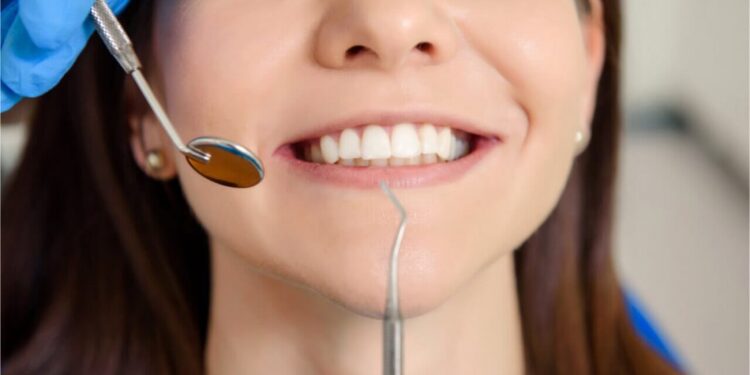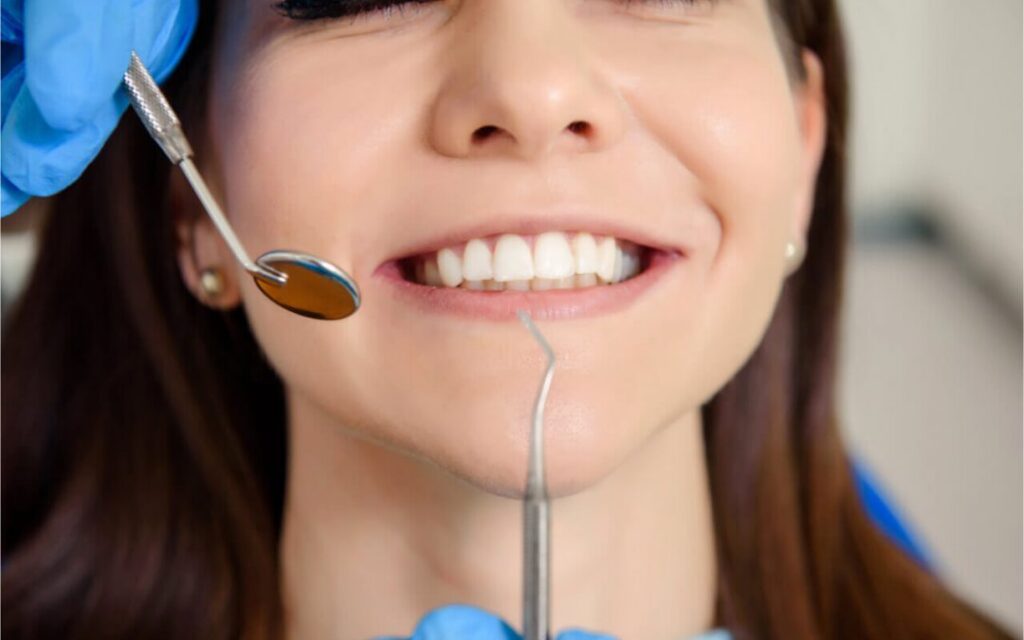
When you visit your dentist’s office for a regular checkup and cleaning, your dental hygienist typically uses specialised tools to remove hardened tartar, plaque buildup, and even food from your teeth. Among these dental tools is a scaler or curette – known as a plaque scraper or ultrasonic dental cleaner – to remove the debris and buildup that can cause staining, discolouration, and decay.
Because of the pandemic, DIY (do-it-yourself) products gained popularity, and among them is the DIY teeth scaler. Although consumer plaque scrapers are widely available, it’s not a good idea to use them yourself. We’ll give you the scoop on why home plaque scrapers can be a risky business – and the best way you can remove plaque and prevent tooth decay.
How do Dental Scalers Work
Plaque (biofilm) can solidify and become dental tartar. It can lead to gum disease and tooth decay if left untreated.
Here’s how the buildup happens:
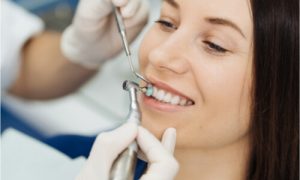
- Bacteria in plaque release acids as they feed upon sugars found in the crevices of your teeth. These acids break down the tooth enamel, causing tooth decay.
- The bacteria can also cause enzymes to damage connective gum tissue and bone, causing periodontal disease.
Understanding the dangers of plaque development and why it’s so vital to prevent tartar buildup is essential for good dental health.
Metal and ultrasonic devices with dangerously sharp edges are utilised for a dental
cleaning to remove the buildup, allowing dental hygienists to remove every last piece of plaque and tartar
from your tooth surface and beneath your gumline.
Your dental hygienist has received considerable training in dental scaling and periodontal debridement, so they understand exactly what to look for and how to remove plaque and tartar properly. While you may believe that this is a simple activity that can be completed at home, it is a popular and dangerous prac
tice that may warrant professional medical advice if problems arise.
What Are The Dangers of DIY Plaque Scraping?
Plaque scrapers/dental scalers are specialist medical equipment that would require training to understand how to use them correctly. Doing it yourself might result in abuse and:
abuse and:
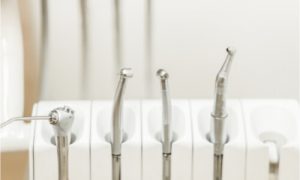 Your fragile gum tissue will be harmed. Gum tissue damage is not just unpleasant; it can also result in gum recession, exposing the sensitive roots of your teeth.
Your fragile gum tissue will be harmed. Gum tissue damage is not just unpleasant; it can also result in gum recession, exposing the sensitive roots of your teeth.- Scratch the enamel of your teeth. Tooth sensitivity may result as a result of this.
- Injuries to the cheeks, tongue, and other soft tissues are common.
- Infections can be caused. One technique is to mistakenly push tartar below the gum line, which can lead to gum abscesses or other issues.
Removing Plaque Safely with Your Home Dental Tool Kit
With good and healthy oral hygiene, you may safely remove plaque at home without a dental scaler if you have a good home oral care regimen. Without going to a dental professional frequently, here are the tools you’ll need to get rid of plaque before it causes tooth decay or gum disease and before it turns into tartar:
- Soft-Bristled Toothbrush and Fluoride Toothpaste: Using a pea-sized amount of toothpaste, brush your teeth regularly, at least twice daily, to remove plaque. You can use either a manual or electric toothbrush, depending on your preferenverview
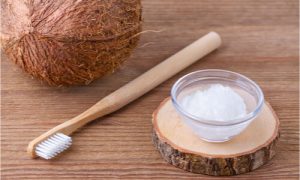 Interdental Cleaner: Remove tartar buildup from between your teeth and under your gum line daily with one of these products:
Interdental Cleaner: Remove tartar buildup from between your teeth and under your gum line daily with one of these products:
- Dental floss or tape
- Interdental brush
- Water flosser
- Antiseptic Mouthwash: Rinse daily after eating a healthy diet.
- Oil pulling: Place a tablespoon of oil, preferably coconut oil, in your mouth. Swish it around for about 5 to 10 minutes. Spit it out like a mouthwash. You can also use olive oil, almond oil, and sesame oil.
- Brushing with baking soda: Brushing with baking soda is a safe and effective way to remove and prevent plaque buildup. Baking soda can remove plaque without damaging the enamel.
Of course, frequent dental appointments may help you determine whether you’re doing a good job and handle other oral health concerns. Using a dental scaler and other devices, your professional dental hygienist may remove any missing plaque and tartar during appointments.
Plaque removal is necessary for optimal dental health, and it is possible to remove plaque and prevent it from developing safely. However, utilising a dental plaque scraper at home might result in tooth problems. It’s wise to leave specialist instruments to your licensed dental experts. That way, you can guarantee that your dental health therapy is safe and effective.
If teeth cleaning is a concern, your dental wellness professionals would suggest that the best way to remove plaque and tartar buildup and prevent tooth decay is through professional teeth cleaning. Dentists have appropriate dental equipment and instruments that they can use to gently and safely remove bacteria from their teeth. Different dental handpieces make it easier for these professionals to help you control tartar and address plaque buildup caused by acidic foods that damage the enamel.
As a dental healthcare professional, it is your duty to make sure that your patients receive the best possible treatments and procedures. These are all possible if you use high-quality dental tools and instruments, like dental handpieces. Do you need one? Then do not hesitate to contact Dental Handpiece at (02) 8806 3763 or browse our website. We understand the need for both value and affordability; that is why we collaborate with the industry’s leading, award-winning manufacturers to offer you the best dental handpieces and products at a very excellent cost. At Dental Handpiece, you can trust that what we offer is only the best for you and your patients.
References:
https://www.medicalnewstoday.com/articles/324341
https://www.healthline.com/health/how-to-remove-plaque
https://nymag.com/strategist/article/how-to-clean-your-teeth-at-home.html
https://www.webmd.com/oral-health/guide/tartar-dental-calculus-overview
The Review
PROS
- Good low light camera
- Water resistant
- Double the internal capacity
CONS
- Lacks clear upgrades
- Same design used for last three phones
- Battery life unimpressive



